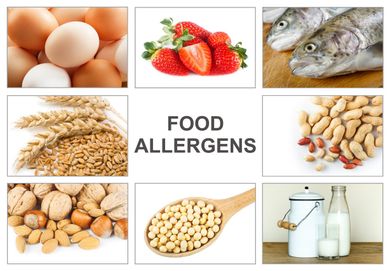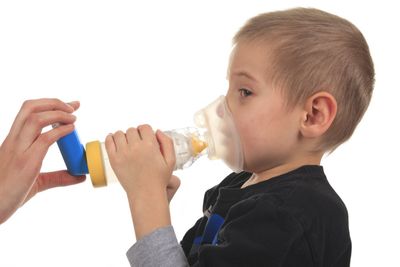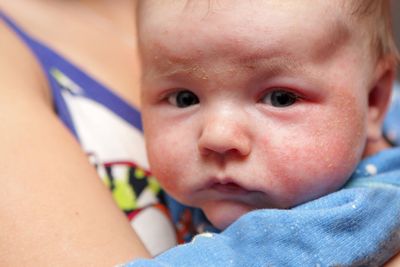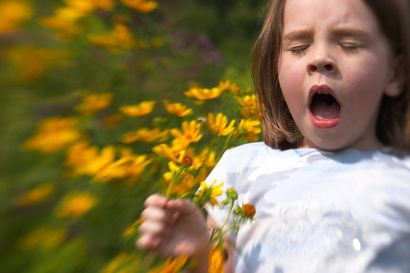Dr Donald HodgeLeeds Private Paediatrician
Children's allergy specialist in Leeds
I am a children's allergy specialist focusing on treating children who suffer from food allergies, eczema, asthma and hay fever. If you have any questions, feel free to contact me. I consult for patients across Yorkshire.

Food allergy
Food allergies pose a serious health concern for children. Allergic reactions are frightening for both children and parents. It is essential to make a correct diagnosis and identify which food has triggered an allergic reaction, so this food can be avoided in the diet. By taking a careful, allergy focused history and using appropriate allergy testing including skin prick tests or blood tests, I will be able to identify the problem. I will give specific dietary advice and arrange specialist dietetic input if required to ensure that your child’s nutrition is not compromised. I will provide written, personalised allergy plans for home, nurseries and schools, and arrange appropriate emergency allergy treatments including antihistamines and adrenaline autoinjectors.

Asthma
By diagnosing asthma correctly, I can optimise treatment, identify the triggers and in the process, make the treatment more effective. You can count on me to identify if your child has asthma and to offer clear and concise advice as to how to administer the prescribed medication.

Eczema
Eczema is a medical condition that causes patches of skin to turn rough and inflamed with blisters, leading to itching and bleeding. It normally responds well to treatment with appropriate creams. Allergies are one of the main factors in aggravating many children’s eczema. You can count on me to identify the reasons that may be either environment or food-related, to help improve eczema and reduce the need for the use of steroid creams as a form of treatment.

Hay fever
Hay fever is a condition that takes a huge toll on your child's body. Although it can be seasonal, sometimes it can last throughout the year. Symptoms such as a blocked or running nose and itchy eyes, can be treated with effective medication along with the determination and avoidance of the causative allergen. I can help by diagnosing which allergen is the cause, offer expert advice as to how your child can avoid it in the future and prescribe the appropriate medication. If symptoms are not controlled despite standard medical treatments, then your child may be suitable for desensitisation to either pollens or house dust mite. I offer all these treatments.
A typical allergy consultation would involve:
• Allergy focused history to explore food(s)/aeroallergens of concern and a global review of the rest of the diet with respect to other potential allergenic foods
• Review of other atopic comorbidity (asthma, eczema, hay fever)
• Allergy testing – most commonly this will be done in clinic using skin prick testing. On occasion, allergy blood tests will be required
• Once allergies have been diagnosed, appropriate dietary advice is given. I have access to a specialist paediatric allergy dietician
• Allergy management plan – a detailed document outlining the emergency medical management in the event of future accidental allergic reactions. All plans are shared with parents/general practitioners/nurseries/schools
• Training in adrenaline autoinjectors (if prescribed)
Skin prick testing
This is a scientifically validated way of diagnosing allergies. Droplets of solutions containing the test substances are placed on the inner forearm, and pricked through into the skin with a small metal lancet. This procedure is not painful and a positive reaction is identified as a small itchy wheal [‘hive’]. A full range of common allergens (foods/animals/dust/pollens) are available in clinic. The testing takes around 15 minutes to complete and the results will therefore be available during the consultation. To undertake skin testing your child must have stopped taking antihistamine medicines for 4 days prior to the procedure. Some cough medicines and night time sedatives contain antihistamines. If you are unclear about whether a medication needs to be stopped then I will happily advise.
At present I personally see in excess of 2000 patients with allergic disease per year, the majority of which have food allergy (common foods including dairy, egg, fish, wheat, soya, peanut, treenuts and sesame) and allergic rhinoconjunctivitis (hayfever – grass pollen, tree pollen, house dust mite).
Please bring your child’s preschool health book (Red Book), copies of any previous clinic letters/test results and list of medication and doses with you to clinic.
If your child is suffering from any allergy in Yorkshire, contact the children’s allergy specialist at Leeds Private Paediatrician today on
0113 218 5908 or 0113 388 2067



